5 Ways to Put the Fun Back into Football Training for Kids
Participation in football at grassroots level is declining in England, and children in particular simply aren’t playing the game anything like as often as they used to. One of the reasons for this decline has been the increasingly competitive nature of youth football. Pushy, aggressive parents and an unhealthy obsession with winning can cause stress and fear amongst kids, and that simply can’t be conducive to player development.
Children need to spend several hours with a football at their feet every week if they are to develop the technical skills so many English professionals lack. If training isn’t fun and rewarding, children will either fail to give 100 percent or they’ll stop playing altogether. By implementing these five fun strategies into training sessions, you can put the fun back into football.
1. Arrange regular parents’ matches
Some parents will insist on watching their kids in training, and as long they don’t interfere with the session, that can be a positive influence on some kids. However, it is very easy for parents to become competitive when it comes to the coaching of their own children, and that can spill over into arguments and bad feeling on the touchline. Thankfully, there is a way to build relationships between parents and entertain the kids at the same time.
Every once in a while, consider finishing your training session five minutes early. Set out a five-a-side pitch with training cones, and split parents into two teams. Set them away with a very brief match, but insist that it be played on a non-contact basis.
2. Break up training with fun challenges
Several studies suggest that concentration levels start to dip after just a few minutes of instruction. If you’re putting the kids through long periods of coaching and tuition, you run the risk of losing their full attention as time passes. So, take just a few minutes after every two or three drills to do something that gets the competitive juices of the kids flowing.
You could line the kids up 40 yards from a goal and play the so-called ‘crossbar challenge’ – which involves an attempt to hit the crossbar with a lofted pass or shot. You could also try mini ‘keep-up’ challenges between the kids, with the winner receiving the right to abstain from boot-cleaning for a week. Try to punctuate your training sessions with fun distractions, and you’ll keep the attention of kids for longer when you have serious issues to get across.
3. Mix up your training drills
A lot of coaches believe that routine and structure are of paramount importance when taking training. While there is undoubtedly an element of truth in that ethos, there is nothing wrong with mixing things up every now and then.
Like the saying goes: “A change is as good as a rest.”
Consider starting training with quick games of dodgeball or ‘British Bulldog’. You might also like to change the venue of training every so often. Try to introduce change and new ideas wherever you can to keep things fun and fresh for the kids.
4. Set aside 15 minutes every session for playground antics
If you have noticed a school playground at break time recently, you will have witnessed chaos, fun and lots of play. After sitting still and concentrating in class, kids need to express themselves and expend pent-up energy. The same principle applies to football training. Performing their drills, concentrating on their technique and behaving themselves for long periods will leave kids mentally exhausted after a while, which is why a little freedom of expression is a great thing.
Set aside 15 minutes in the middle of training for ‘play’. Give the kids balls, training cones, markers and anything else they might need in order to enjoy themselves. As long as what the kids choose to do with their 15 minutes involves football, you can be fairly confident that this little break-out session will not have been wasted. You will probably find that the children split off into pairs and groups for kick-abouts and various demonstrations of their skills. This is a great way to keep young players relaxed and motivated during their training sessions.
5. Introduce a ‘trainer of the week’ award
As a little bit of fun, buy a token trophy and designate it as the ‘trainer of the week’ award. This will inspire the competitive nature of the kids, and it may just focus their efforts at times when concentration, hard work and their undivided attention are needed. However, it’s important to make sure that every player who deserves the accolade receives it during the course of the season. Being trainer of the week will gradually become something to strive for and boast about.
Football is a game of skill and passion, and it should be fun. If you can inject an atmosphere of unpredictability, excitement and togetherness into your training sessions, the kids you coach will enjoy their football more – and improve as players as a result.


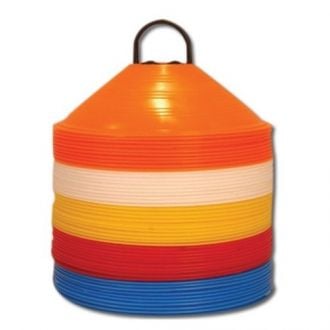
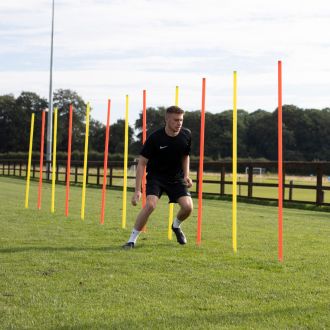
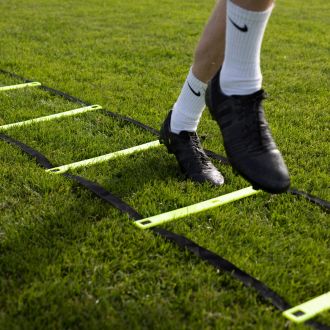



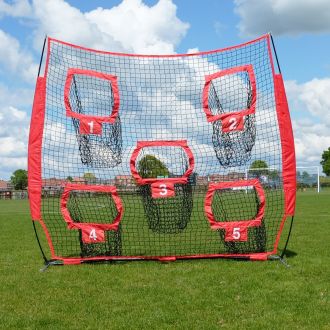
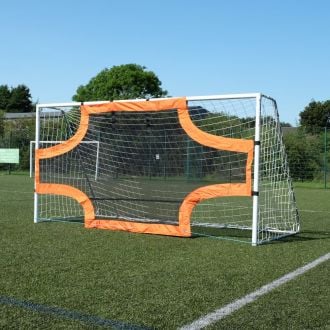
Parents don't let their kids out like they used to because of the new generation of undesirable that litters our streets.....and the Cops don't protect the public or kids playing football in parks anymore. That is nearer the truth I'd say.